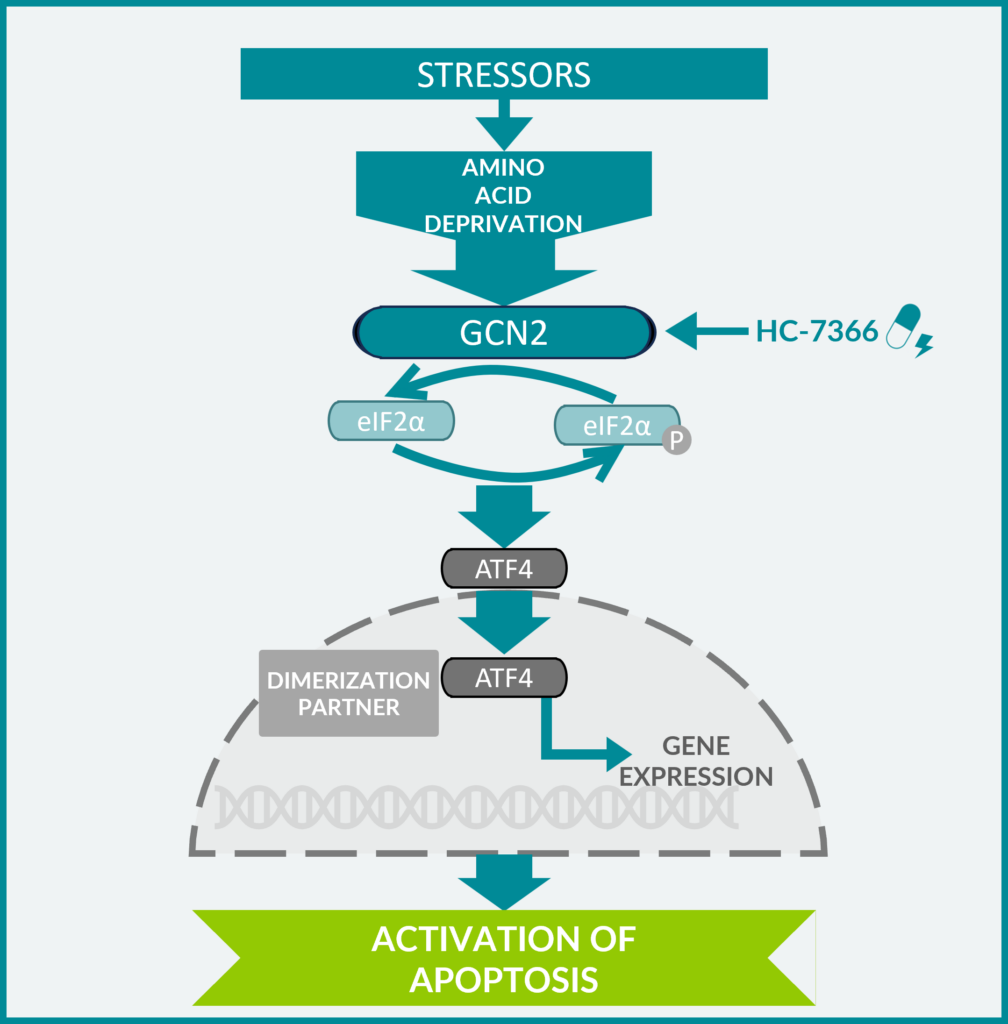HC-7366
HC-7366
HC-7366
Clinical Development of HC-7366
----------
Activation of GCN2 by HC-7366 results in significant antitumor efficacy as monotherapy in multiple solid and hematological malignancies. HC-7366 also demonstrates enhanced combinatorial efficacy with varied standard of care agents such as HIF-2a antagonists, anti-BCL2 and anti-EGFR-TKIs.
HC-7366 is under investigation in a Phase 1b trial as monotherapy and in combination with a HIF-2α inhibitor for the treatment of clear cell renal cell carcinoma. HC-7366 is also under investigation in a Phase 1b study as monotherapy and in combination with venetoclax and azacitidine for the treatment of acute myeloid leukemia (AML).

GCN2 and the Integrated Stress Response
- GCN2 (General Controlled Nonderepressible 2), one of the kinases in the ISR family, responds to amino acid deprivation and is a key metabolic stress sensor in cells
- While cancer cells are known to utilize ISR for survival, prolonged or hyper activation of ISR has been shown to induce apoptosis
- Activated GCN2 phosphorylates eIF2⍺ and enhances ATF4 translation resulting in either survival or apoptosis in a context-dependent manner
- Hyperactivation of the ISR via GCN2 results in anti-tumor activity
- GCN2 is implicated in maintaining an immunosuppressive microenvironment
- Activation of GCN2 by HC-7366 results in anti-tumor activity by lethal activation of the ISR – Inhibition of protein translation, downmodulation of oncogenic proteins, and induction of mitochondrial dysfunction are some of the mechanistic characteristics
- HC-7366, a First-in-Human GCN2 activator, is currently under investigation in 2 Phase 1b clinical trials